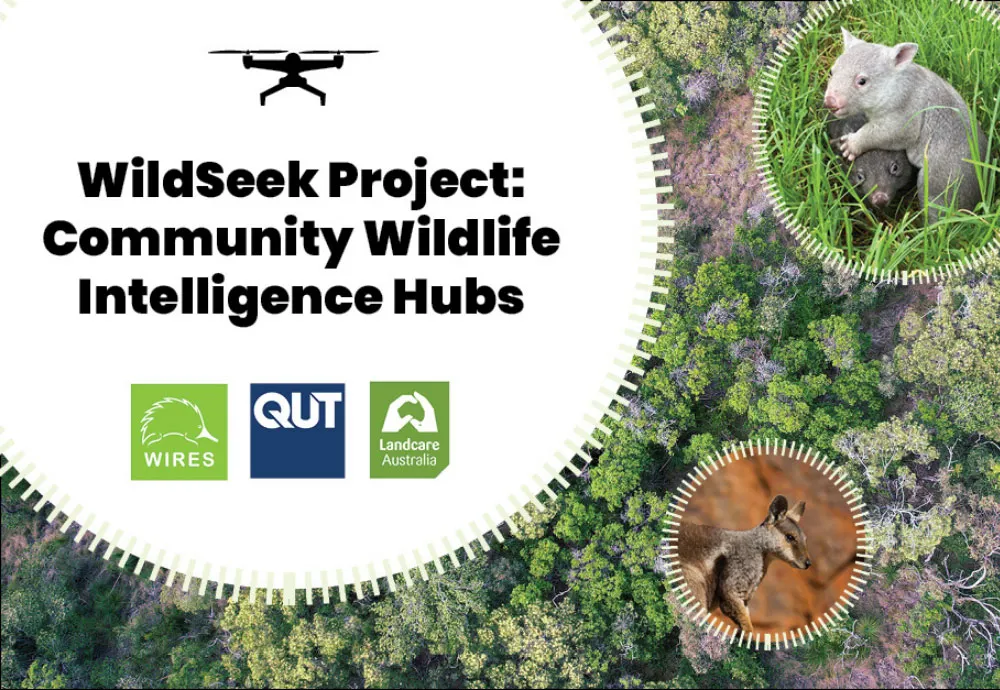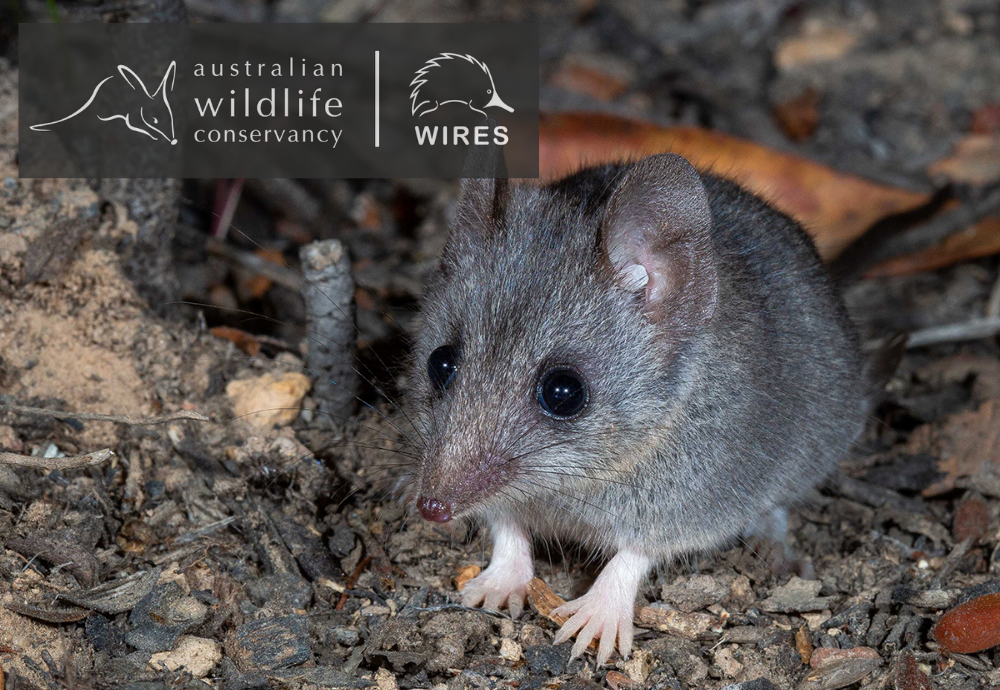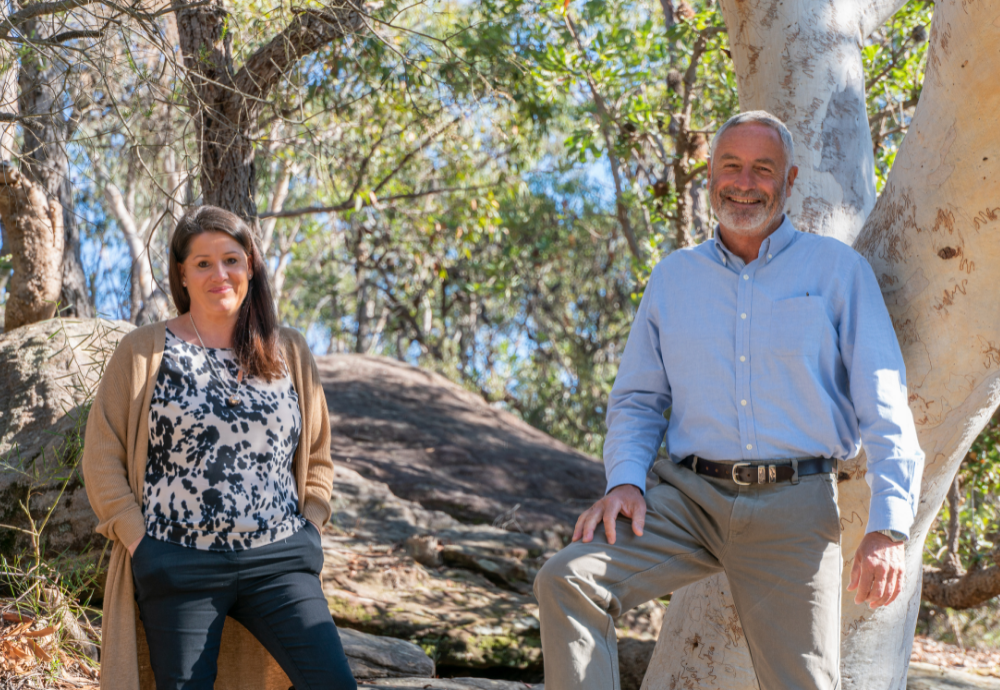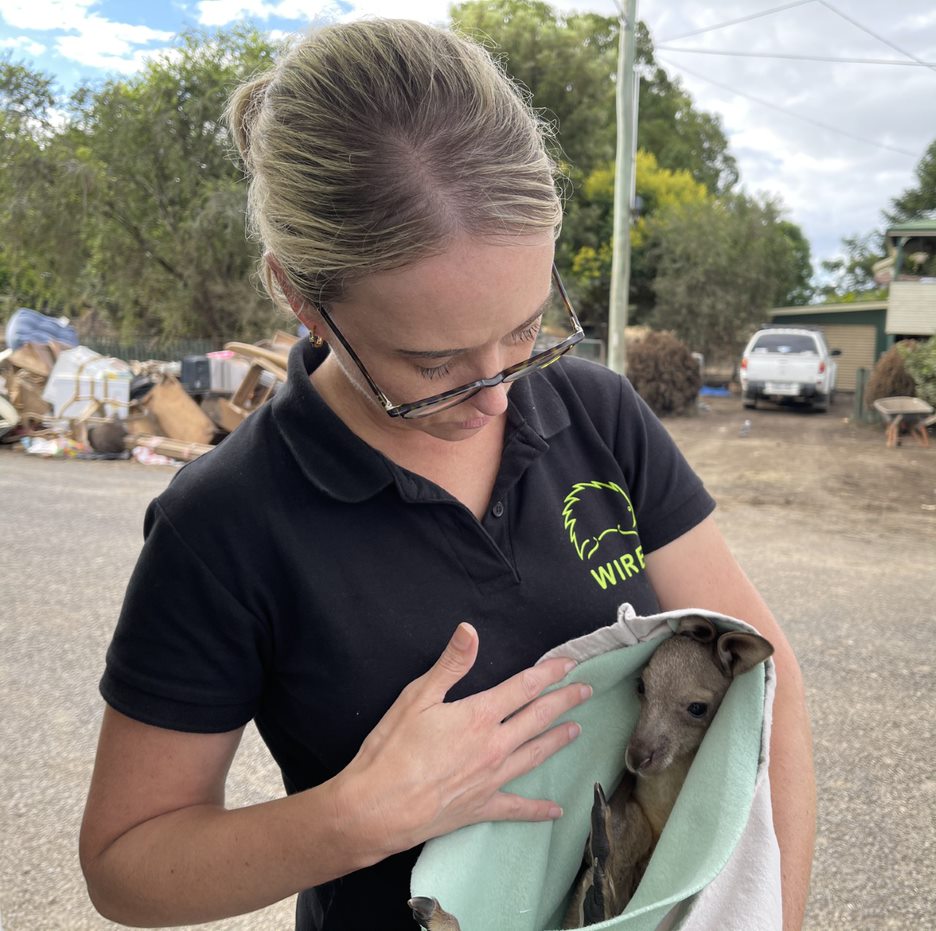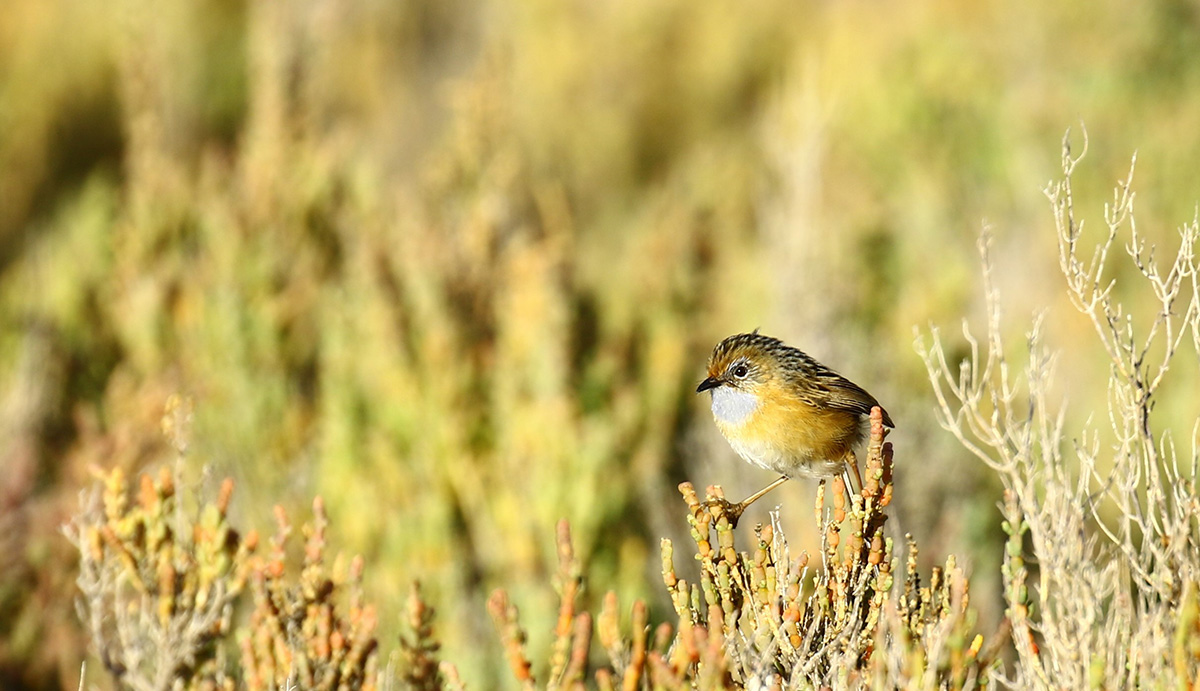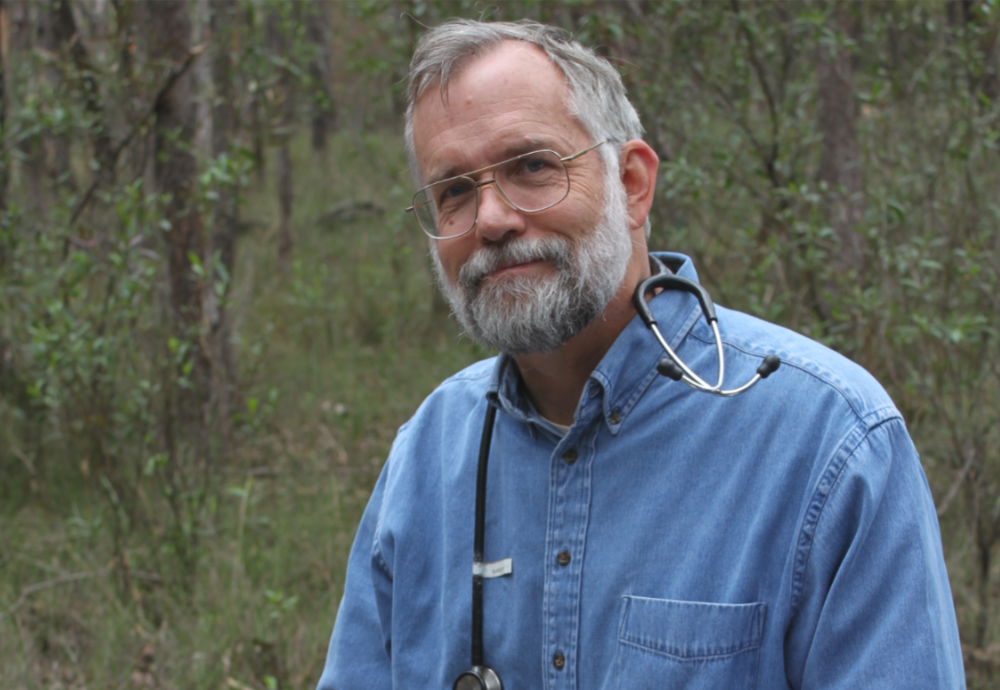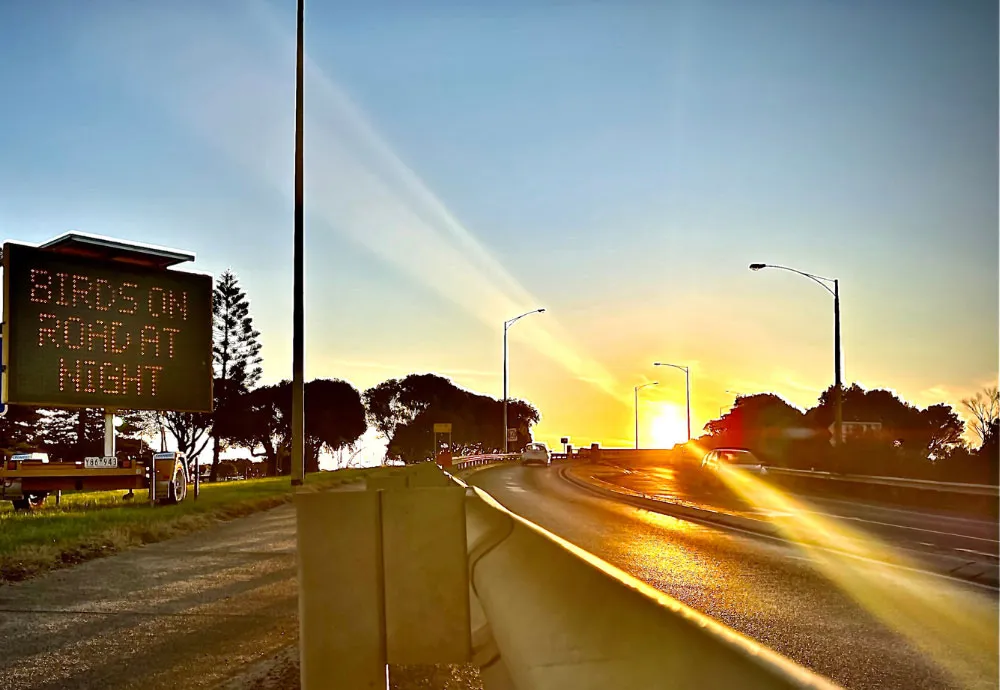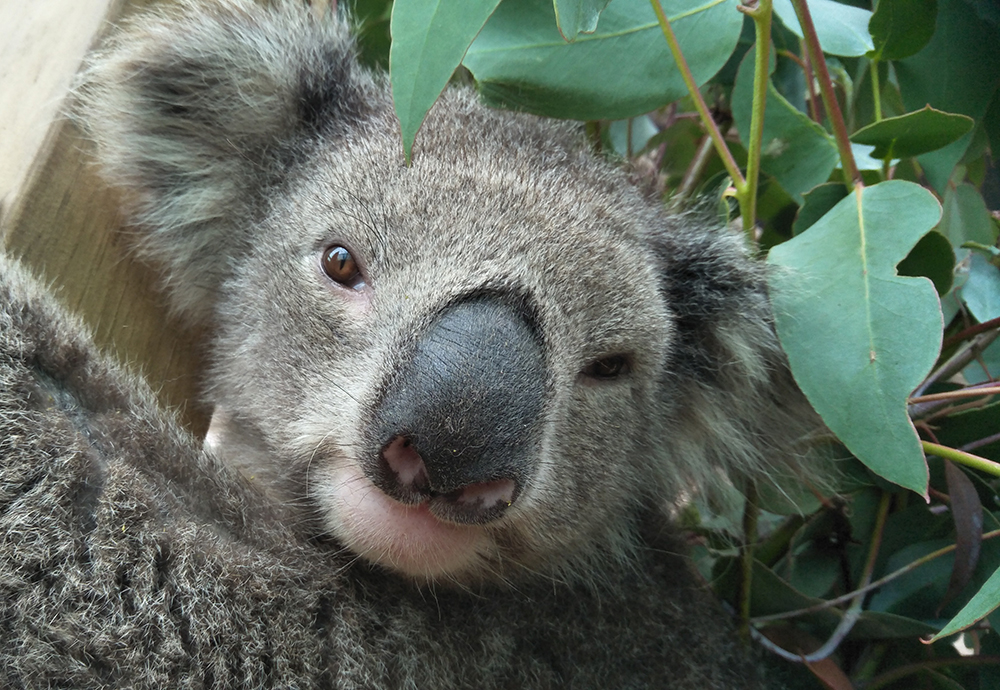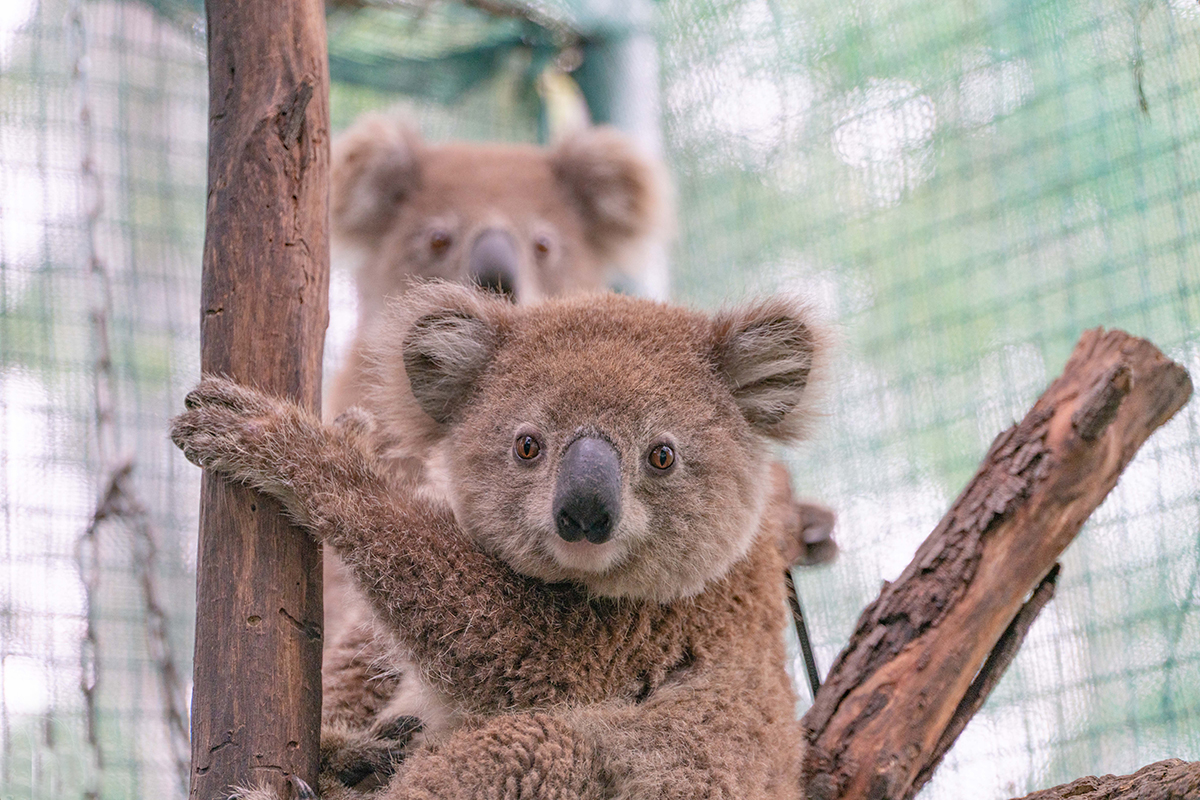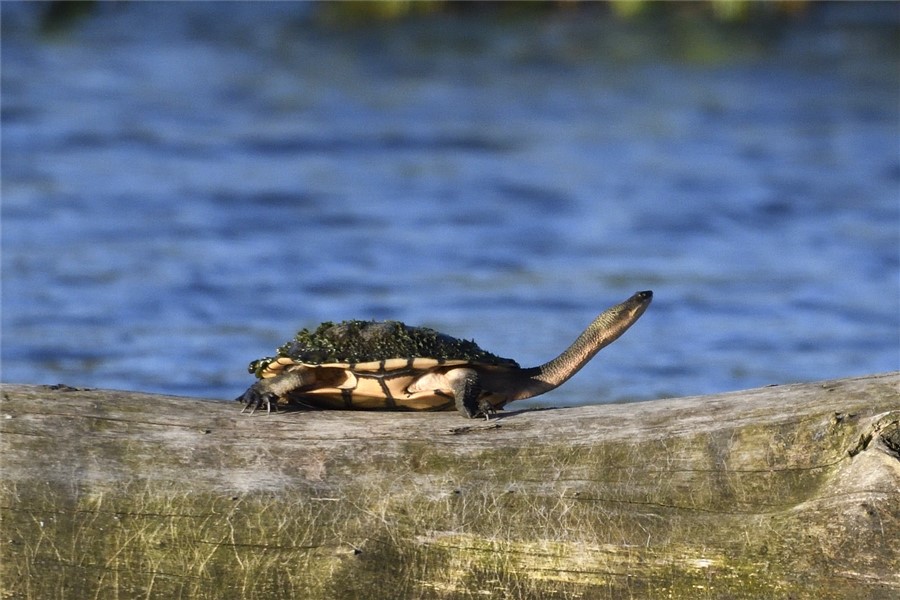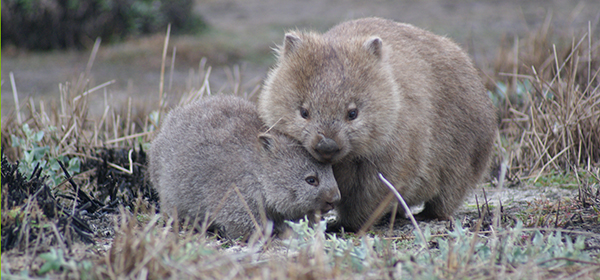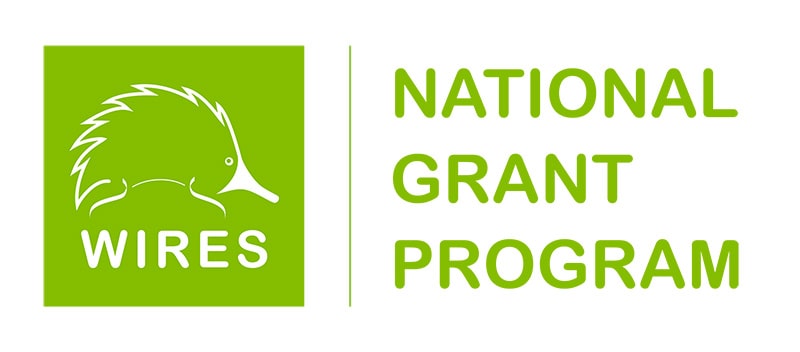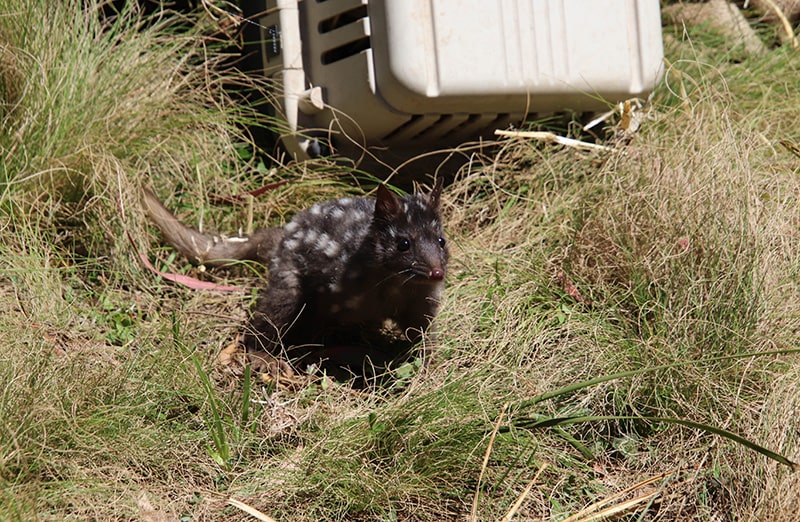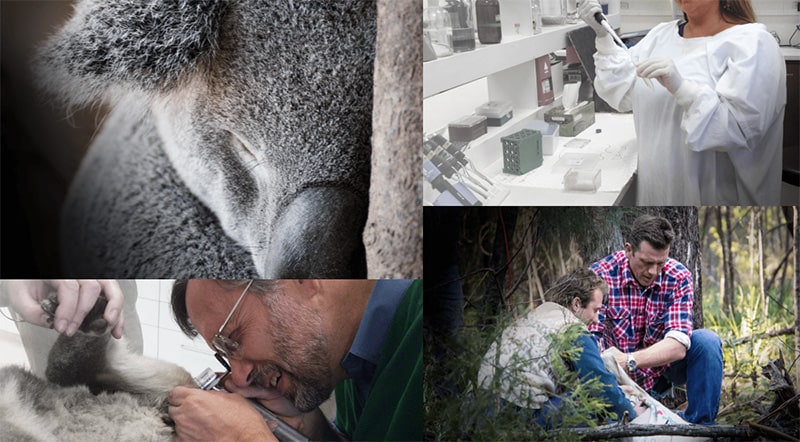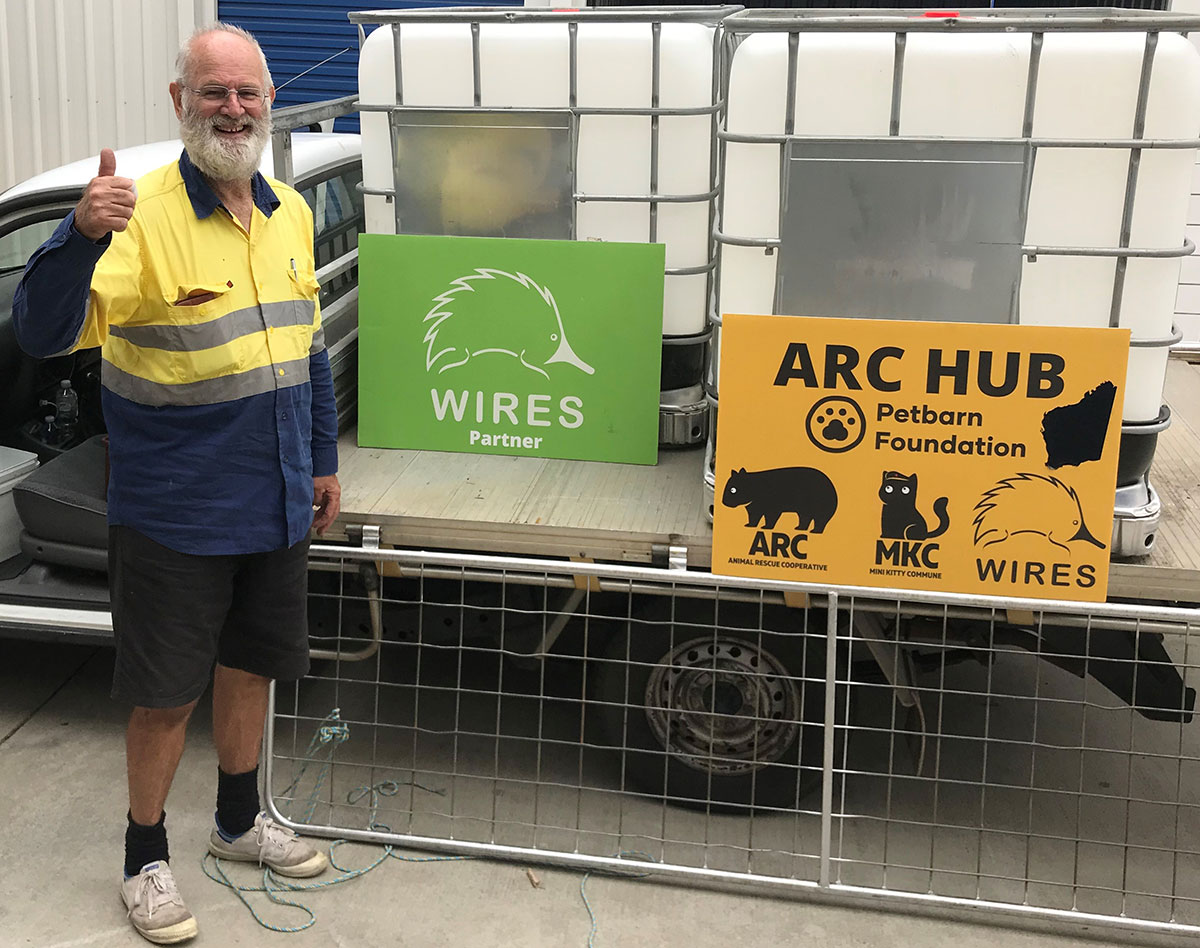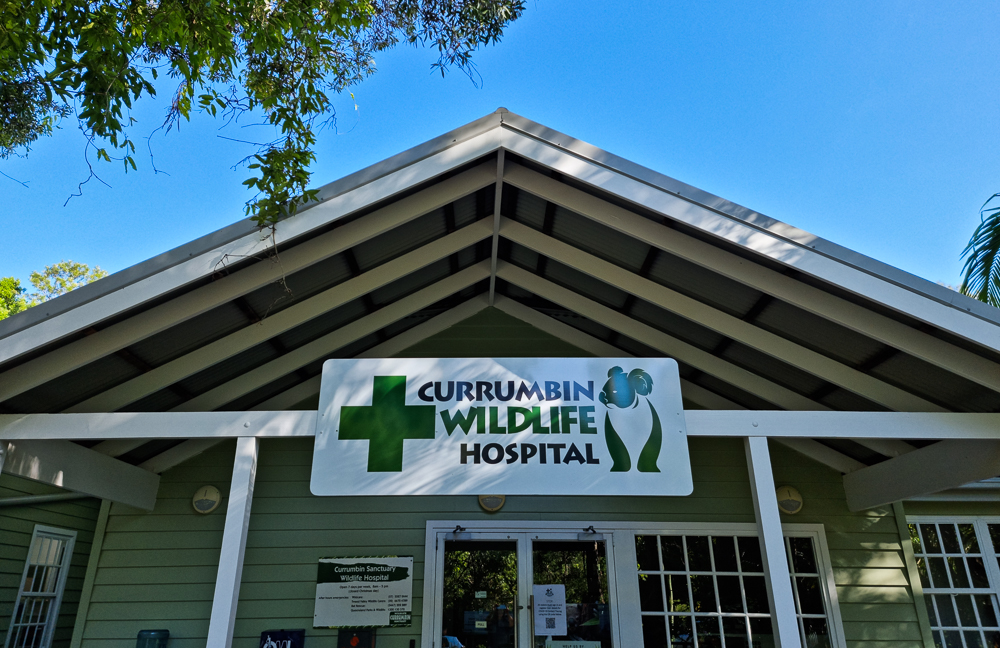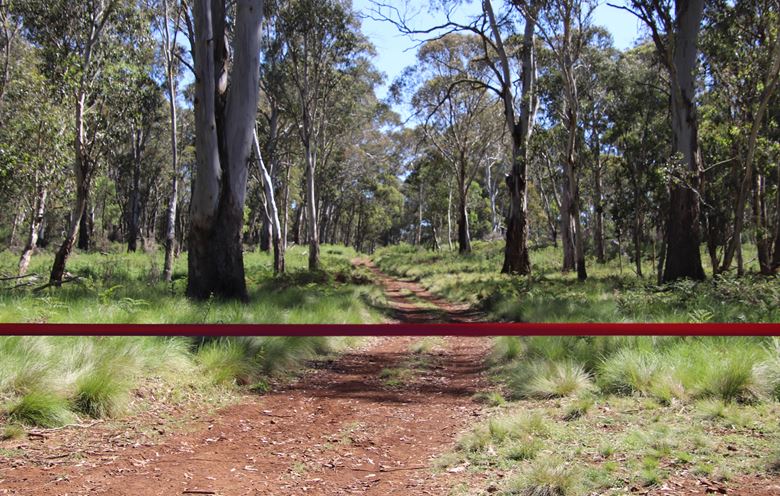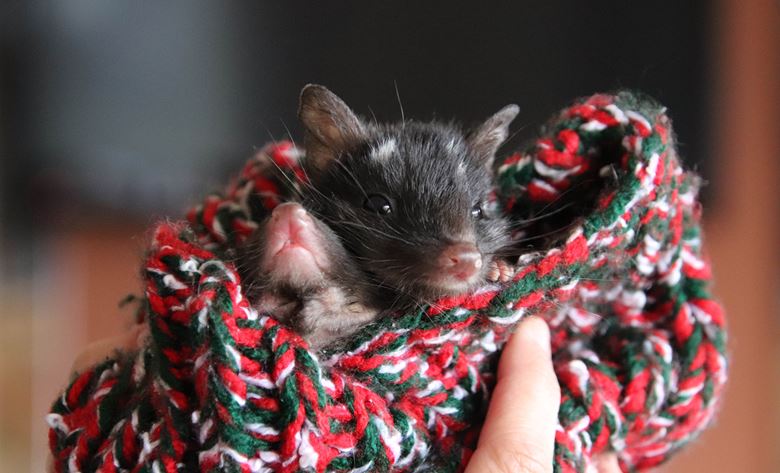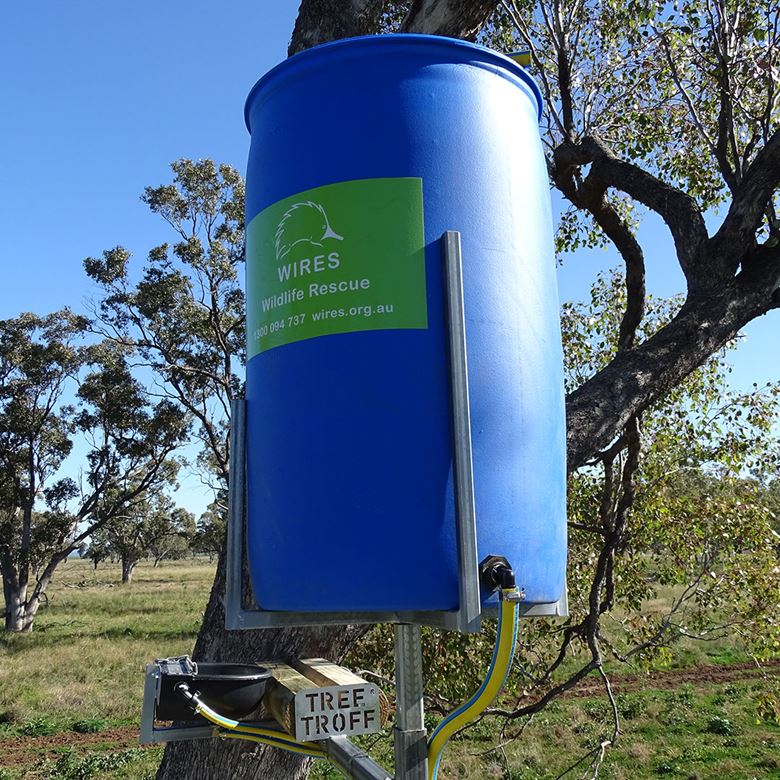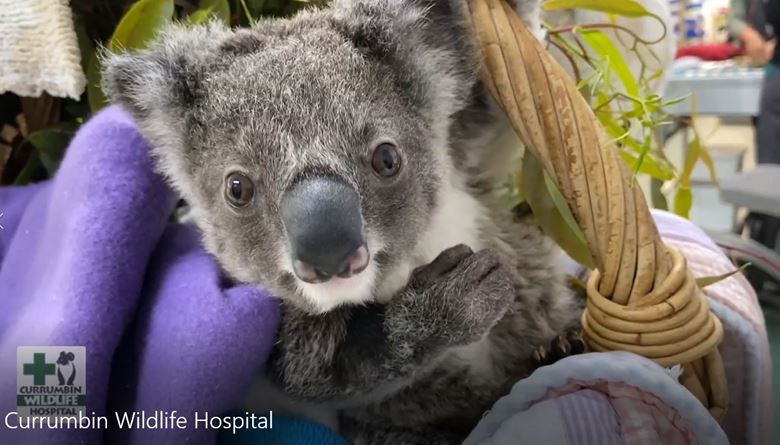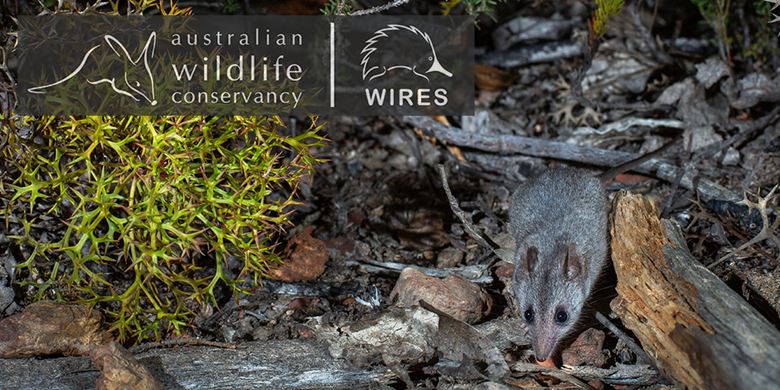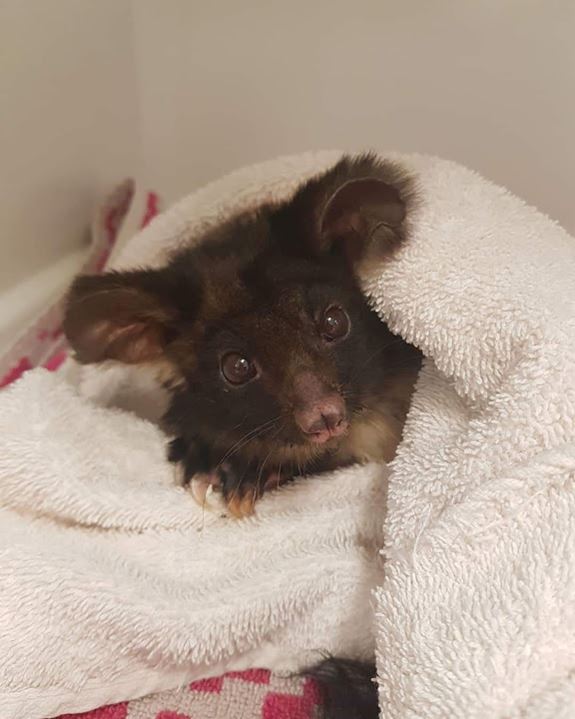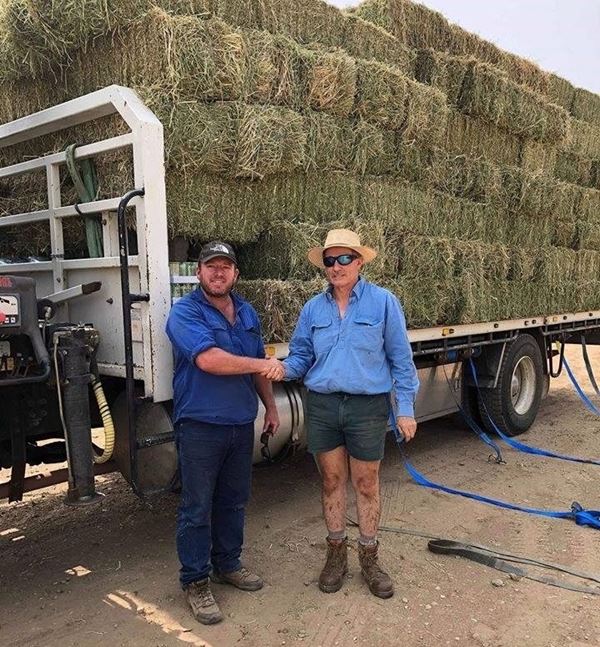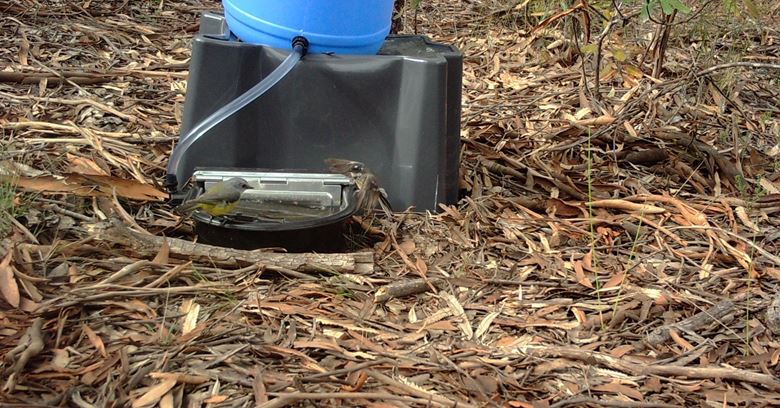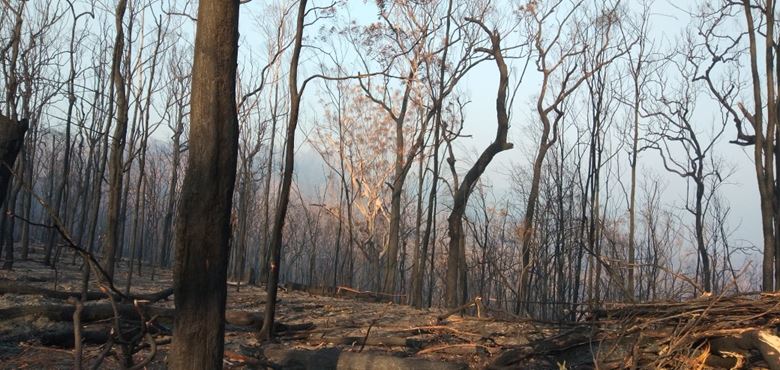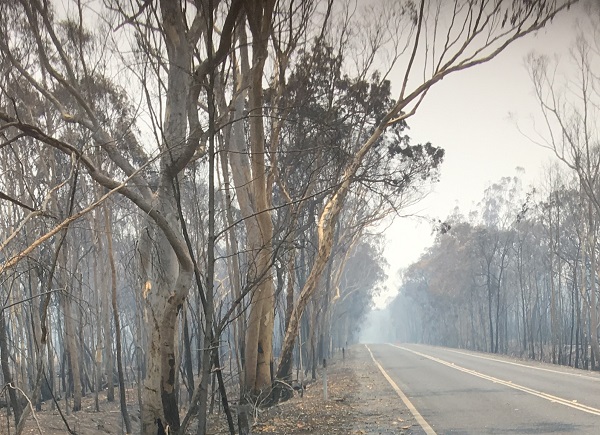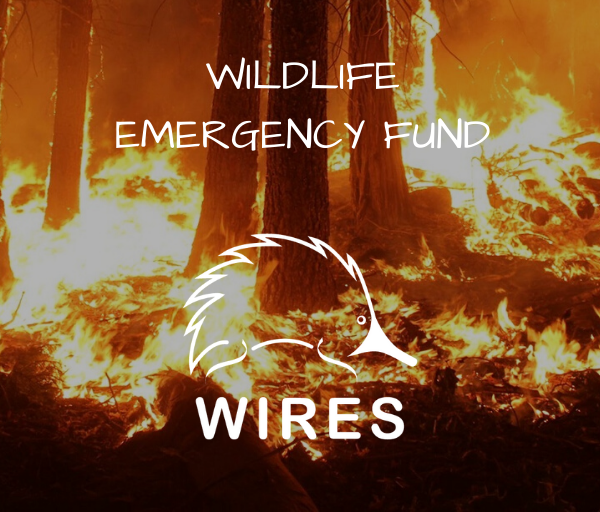
Emergency Response and Recovery Plan
The catastrophic Black Summer bushfires took an unprecedented toll on native animals in 2019/2020 and this crisis event was preceded by a long-term drought that had lasted almost a decade in many parts of Australia. The fires saw millions of hectares of land burnt including threatened species habitat and an estimated twenty percent of Australian forests were impacted. As a result, hundreds of species are now closer to extinction with a WWF Report confirming that almost three billion animals were fire affected, including 143 million mammals, 2.46 billion reptiles, 180 million birds, and 51 million frogs.
The WIRES Emergency Fund was created to respond to these natural disasters and the ongoing threat of habitat destruction. This was made possible by the global financial support received in 2020 which enabled WIRES to provide immediate emergency response, establish longer term recovery plans and increase capacity for future extreme weather events.
Over the last 24 months and whilst negotiating the operational restrictions caused by the COVID-19 pandemic, WIRES has managed to deliver significant results for wildlife nationally with many more projects to be launched this year. WIRES is collaborating with leading environment organisations, wildlife groups, universities and government agencies nationally to deliver the best long-term outcomes for wildlife. Due to climate change, scientists are forecasting that temperatures are rising and that the frequency and intensity of natural disasters such as bushfires and extreme weather are predicted to increase.
WIRES Emergency Response and Recovery Plan outlines our strategic approach to the disbursement of the $90 million raised in the Emergency Fund in early 2020. In October 2020, the Australian Charities and Not-for-Profits Commission (ACNC) reviewed three major charities involved in the bushfire response and were beneficiaries of world-wide donations, including WIRES. Read the review.
STAGE 1 RESPONSE
WIRES priorities for Stage 1:
- Emergency response to optimise welfare outcomes for native animals
- Wildlife rescue and rehabilitation requirements for additional wildlife food and equipment
- Habitat and species recovery projects in areas impacted by the fires and drought
WIRES committed $12.4 million to Stage 1, including:
- $4+ million for Wildlife Rescue and Rehabilitation
- $2.6+ million for Species Conservation and Fire Recovery Projects*
- $1.2+ million for Wildlife Habitat Recovery
- $1.2+ million for Wildlife Research*
- $1+ million for Food for Wildlife
- $1+ million for Water for Wildlife*
Key Projects Include:
- Projects to support vets nationally, including an urgent extension to Currumbin Wildlife Hospital to expand treatment capacity
- 223 projects to support wildlife rescue and rehabilitation nationally
- 64 habitat recovery projects nationally, including the planting over 92,000 native plants to support over 50 native species
- Conservation projects to support 17 threatened species
- Critical koala research
*With multi-year programs the funding is allocated over several years and dispersed based on an approved schedule, aligned with the delivery of project outcomes.
STAGE 2 RESPONSE
WIRES priorities for Stage 2 are:
- Increasing national rescue and rehabilitation capacity
- Improving emergency wildlife response capability
- Supporting long-term species and habitat recovery projects
WIRES committed $41 million to Stage 2, including:
- $5+ million for five-year National Wildlife Grant Program*
- $3+ million for Koala, Flying-fox, Platypus & Plains-wanderer Projects to be announced by June 2022*
- $2.5+ million expanding Rescue Office Capacity
- $1+ million for expanding Rehabilitation Capacity in NSW and National Emergency Preparedness
- $1.6+ million for three-year National Wildlife Research Grant Program*
- $600K+ for critical wildlife research for Turtles, Wombats and Koalas plus breeding programs for Turtles and Koalas*
- $23+ million allocated for projects expected to be announced by December 2022
Key Projects Include:
- National Grant Program launched 2021 is supporting over 60 key wildlife projects in the first year
- National Research Grant Program launched in February 2022
- Increased Rescue Office Capacity to enable WIRES to handle higher rescue call volumes e.g. Oct 2021 WIRES 1300# was receiving over 6,500 calls per week
- Major rehabilitation capacity project for primary species categories rescued in NSW, including Raptors, Flying-foxes, Birds, Wombat, Echidnas and Marine Turtles.
- Conservation research and breeding programs for endangered freshwater turtles
- Mange treatment research for wombats to improve in field treatment outcomes
- Koala research and breeding program
*With multi-year programs the funding is allocated over several years and dispersed based on an approved schedule, aligned with the delivery of project outcomes.
STAGE 3 RESPONSE
WIRES priorities for Stage 3 are:
- Review of Stage 1 and Stage 2 projects to assess and confirm impact delivered for wildlife
- Assessment of threatened species and habitat recovery requirements to identify any gaps
- Strategic investment in major projects to facilitate WIRES capacity for best practice rescue, rehabilitation and emergency response
WIRES has committed $37 million to Stage 3 and the final allocation of funds is expected to be confirmed by December 2023.
All Emergency Funds will be allocated to projects and programs that support wildlife rescue, rehabilitation and recovery.
PROGRAM / FUND MANAGEMENT AND ADMINISTRATION
WIRES estimates less than 8c per dollar will be spent on essential program management and administrative costs.
PROJECT UPDATES
First step toward National Conservation AI Network underway
The first step toward building a national conservation AI network is underway, with the WildSeek Project: Community Wildlife Intelligence Hubs... read more
Australian Wildlife Conservancy Project Update
Following the Black Summer bushfires WIRES provided funding to Australian Wildlife Conservancy (AWC) to support three key projects. AWC has... read more
50+ threatened species benefit from landmark Wildlife Grants Program
Over 50 threatened fauna species including Regent Honeyeaters, Platypus, Koalas and Greater Bilbies have benefitted from the landmark WIRES Landcare... read more
As the floods recede and access becomes possible, our teams have continued to reach into flood affected areas to rescue... read more
WIRES has developed a $1.5 million research grants program to provide support for wildlife researchers across Australia. read more
2021 WIRES National Grant Program Grantees
WIRES has announced the 67 recipients of the 2021 WIRES National Grant Program whose projects aim to improve outcomes for... read more
University of Sydney Native Wildlife Health and Disease Research Grant Update
WIRES is currently funding research at the University of Sydney School of Veterinary Science to better understand and manage wildlife... read more
Phillip Island Nature Parks National Grant Update
Phillip Island is home to a colony of over 1.4 million native short-tailed shearwaters! This migratory bird is protected and... read more
WIRES extends national support for koala research
As part an ongoing commitment to protect and preserve koala species nationally, WIRES has announced a major grant to the... read more
If you work with Australian wildlife and their habitats, WIRES is interested in hearing from you! This survey will be... read more
November is Turtle Month and WIRES has announced it will be supporting more projects to address the vital conservation of... read more
To mark the official day of the Wombat, WIRES has announced a range of new initiatives to support this much... read more
WIRES Launches Major Grant Program for Wildlife Sector
WIRES has announced a $5million grants program to improve outcomes for Australia’s native wildlife. WIRES National Grant Program will be... read more
National Science Week: Conservation Ecology with Aussie Ark
To celebrate #NationalScienceWeek we caught up with our partners AussieArk to talk about conservation ecology, threatened species and the Barrington... read more
NSW Rehabilitation Capacity Building Project
WIRES is undergoing a comprehensive review of wildlife rehabilitation facilities across NSW. This will lead into the biggest rehabilitation capacity... read more
Koala Health Hub | Project Update
Following the major 2019/20 bushfires, the Koala Health Hub (KHH) at the University of Sydney was the recipient of a... read more
Wildlife Research Grants Program
WIRES has announced it will fund a $1.5 million wildlife research grants program to be launched early 2022. This program... read more
WIRES Supporting ARC in Emergency Response Capacity Building
WIRES has announced $420,000 in funding for Animal Rescue Cooperative (ARC) to help improve national emergency response capabilities and provide... read more
Official Opening of Currumbin Wildlife Hospital Extension
Just 12 months ago Australia was at the end of our worst fire season in history, which followed one of... read more
Australia’s outdated environmental law urgently needs overhaul
The release of the 10-year independent review of environmental laws by Professor Graeme Samuel AC is the reform Australia desperately needs... read more
Official Opening of the Barrington Wildlife Sanctuary
Official Opening of Barrington Wildlife Sanctuary © WIRES WIRES was invited to Aussie Ark for the official opening of their... read more
Eastern Quoll Joeys © WIRESMany native Australian species were already at risk of extinction, before approximately 3 billion native animals... read more
WIRES is Preparing for the Bushfire Season
With the bushfire season fast approaching WIRES has been working on a range of initiatives and programs in preparedness for... read more
Aussie Ark Partners with WIRES in Landmark Partnership for Australian Wildlife
WIRES has granted Aussie Ark $1,045,000 to support the long-term recovery of native threatened wildlife The funds will be directed towards... read more
WIRES Launches Water for Wildlife Project
WIRES is proud to announce the Water for Wildlife collaboration that will build and distribute $1 million worth of arboreal... read more
WIRES Water for Wildlife Project
WIRES Water for Wildlife collaboration will build and distribute $1 million worth of arboreal water stations for native wildlife. The... read more
WIRES Partner with Currumbin Wildlife Hospital to Help Wildlife
Image: Steve Holland PhotographyWIRES is proud to be supporting Currumbin Wildlife Hospital, Queensland to expand its facility and be equipped... read more
WIRES and the Australian Wildlife Conservancy (AWC) have joined forces to help save threatened Australian wildlife in response to the... read more
Monday July 13 2020: WIRES and Landcare Australia have announced that 64 environmental groups across the country will benefit from... read more
WIRES uses bushfire donations to support University koala research
WIRES has announced a three-year grant to the Koala Health Hub (KHH) a University of Sydney initiative to support koala... read more
WIRES uses bushfire donations to support University koala research
WIRES has announced a three-year grant to the Koala Health Hub (KHH) a University of Sydney's School of Veterinary Science... read more
Emergency Relief Grants Overview
The first week of January 2020 was one of the worst in our history, as the ongoing tragic toll of... read more
The emergency events over the last spring and summer were some of the worst ever experienced. Many vets were inundated with... read more
WIRES and ARC Helping Wildlife
WIRES have been working closely with ARC, the Animal Rescue Cooperative, during and in the aftermath of the bushfires that... read more
WIRES Landcare Wildlife Relief and Recovery Grants Program
WIRES and Landcare Australia have joined forces in a landmark $1million partnership supporting recovery of wildlife habitats impacted by bushfire... read more
WIRES and Landcare Join Forces
WIRES and Landcare Australia are delighted to announce a landmark $1 million partnership supporting the recovery of wildlife habitats impacted... read more
Due to the tragic fires and drought surviving wildlife in the wild have been facing significant challenges. Additional access to... read more
WIRES Emergency Wildlife Relief and Recovery Plans
In the aftermath of Australia’s devastating bushfires and drought, WIRES (NSW Wildlife Information and Rescue and Education Service Inc) has... read more
The Ripper Alliance Partnership
WIRES has partnered with The Ripper Alliance investing $150,000, with the generous support of Westpac, in a six-month trial to... read more
WIRES announce 3 Million Dollars for Emergency Wildlife Rescue and Care
NSW Wildlife Information, Rescue and Education Service (WIRES) has launched two national emergency relief grants programs to support volunteers assisting... read more
After months of concurrent fires devasting Australia there are still dozens of fires burning in NSW alone. During the worst... read more
During the emergency events underway in Australia WIRES have received an overwhelming amount of calls, enquiries and offers of help from... read more
Statement from WIRES CEO, Leanne Taylor
Statement from WIRES CEO, Leanne Taylor. For immediate release, 10th January, 2020. In what has become one of Australia’s most... read more
It is with shock that we continue to face the unfolding fire and drought catastrophe in NSW and Australia. Over... read more
Emergency Donations to Help Wildlife
Updated 6th Feb During the worst drought on record, catastrophic fires have ravaged Australia for months. Over 4.9 million hectares of... read more
Emergency Wildlife Rescue Advice
NSW is again in a State of Emergency, there are currently 135 fires still burning in NSW, over 4 million... read more
Over 2 million hectares of land have been burnt, dozens of fires are still burning and we are now bracing... read more
NSW Premier Gladys Berejiklian has declared a state of emergency due to the catastrophic fire conditions. The state is facing... read more
WIRES Major Wildlife Rescue, Rehabilitation and Recovery Partners

Animal Rescue Cooperative

Australian Wildlife Conservancy

AussieArk

Currumbin Wildlife Hospital

Landcare Australia

The University of Sydney

